Kate Bowler: I’m Kate Bowler, and this is Everything Happens. I’m a historian, author, aggressively, fast walker. But lately, in a world that promises endless progress, even now in a pandemic, I’ve realized I just need to be a person. It’s hard to give up on the feeling that the life you want is just out of reach. If only you tried. Eat this food, find that relationship, just get the kids graduated or the parents this kind of care. Only then will I feel different. Better. Whole. But that’s not the way this works. When I was 35, I was diagnosed with stage four cancer. And here’s the very fun thing about that. The world loves you better when you are shiny, when you are cheerful, when you still believe that your best life now is right around the corner. I’ve written multiple books on the history of the idea that you can always fix your life. So I’m going to be the one to say it. There are some things we can change and some things we can’t. And it’s OK that life isn’t always getting better. We can have beauty and meaning, community and love, and we will need each other if we’re going to tell the truth. Life is a chronic condition and there’s no cure for being human.
Kate: We are not disillusioned anymore. Our little darlings, our pet theories about what we deserve and how this might go are gone. They’ve been swept away not by a breeze, but by gale force winds. And yeah, all right, here we are. I know this sounds very sanctimonious, but a long time ago, someone told me that I would need something very strong to stand on to live here like this. Virtue’s said my friend, Reverend Dr. Warren Smith. And I believed him not only because he was wearing a clerical collar, but because he always seemed like he had been built by them. Virtues like love. He was very good at being loving and never nearly as sarcastic as I am. And hope. He seemed to know that hope was something that I had pretty sure that I’d gotten confused with optimism. When I look around at people who know how to stand, they’re built by something other than a gauzy photo filter and a sign in the living room that reads live, laugh, love, I realized that I’m searching for people who embody good, strong virtues. Virtues are not just concepts, they’re ideas that must be practiced. It’s not love if you’re not loving. You’re not faithful, if you don’t step out to the unknown. It’s awful because it must be done, tried. We can’t just imagine it into being. When people and communities can bring them to life, put skin and bones on concepts and ideals, it is wonderful to behold. It allows us to dream. What would it be like if this worked? Can this help me live? Can this take me a little further to the place I want to go, the person I want to become? Today, our guest is one of my favorite writers who wrestles with the embodiment of our deepest hopes to be transformed. She is a dreamboat to read, so I will spare no time in saying I am elated to be talking to Anne Lamott. Anne Lamott is a writer and speaker who doesn’t sugarcoat a single terrible thing. Her beautiful books like Traveling Mercies, Plan B, Bird by Bird, which should be required reading for any writer, and her latest Dusk Night Dawn are filled with honesty, disappointment and hope. Her essays about alcoholism, motherhood and Jesus will leave you in a fit of tears or laughter or both at the same time and remind you that sarcasm is also a spiritual gift. Anne, thank you so much for being with me. I thought my life was complete before this, but apparently it’s happening right now.
Anne Lamott: Thank you Kate. I love you and I’m so, so glad to be with you. And I loved your book. I could be interviewing you. But that’s not the concept today.
Kate: I, I think I think it might be fun where we could just start with reality because every other premise seems absurd. As we speak, we are living through a version of the apocalypse and your book begins there. You brook no nonsense about this subject in case anyone feels confused about this. What are the things we genuinely have to fear?
Anne: Well. I guess death. I don’t really care that much about my own death, because as a believer, I sort of think of it as a really dramatic change of address. But the only thing I really fear is the death of the people I love most. You know, there’s like three or four people that I can’t imagine living without and but my best friend’s son, just died, he was twenty three and I’m a little bit mad at God, I’m not quite speaking to God about this yet, but, the grace that that house was filled with and the grace of his passing was so incredible and yet she lost her son, her child, and so she’s been sober as long as I have thirty four years. And she said to her sponsor, I’m just terrified and the Sponsor said, What are you afraid of? And she said, I’m afraid I can’t do this. And the Sponsor said, well, you’re doing it. And that really helped me that even up to that last breath and until the next day when the day of his death and we bathed him together and annointed him, she was doing it. And, you know, covid has been so heartbreaking, not because of what the impact on me. And I’m older, too. I know I’m going to be sixty seven next month. And so I got my shot and I get another shot next week. But in the world, what people in the rest of the world what people are living through who are already living through grinding poverty and genocide, you know, and then on top of it is disease. It’s terrifying. And yet without sugarcoating anything, the response has broken my heart open in the good way. Like Carly Simon said, there’s more room in a broken heart and to watch people take care of one another right now and and to take care of the poverty stricken all over America. It’s medicine. It’s like Rumi said, that through love, all pain will turn to medicine. It doesn’t say most pain or some of the pain. It says all pain. From watching that around me and it brings me to tears, I’m sure it brings you to tears too.
Kate: Yeah. There’s an awe seeing like all the ragged edges and then seeing everybody drop close to it with love. It does absolutely stagger me every time I’m near to it.
Anne: And I’m always shaking people down for money for one reason or another because for some weird reason, I’m good at it and people I’ve never met will send me like a thousand dollars. I mean, it’s real money. A hundred dollars is a lot. I think you feel it. The people I’ve never met will send me a thousand dollars. And that’s what love looks like sometimes. I’m a lot older than you are but when I was coming up in the 50s and early 60s, people talked about sacrifice because they’ve just come through the war. My parents generation had it. My mother’s from Liverpool, so she’d been there. My father was in the Navy and they knew from sacrifice, you know. My parents were atheists, so I wasn’t allowed to think about God or Jesus, his sacrificial love. But my grandparents were Christian missionaries, so I had this sneaky little alcove I could go to and hear about it. And when people sacrifice, whether it’s their money or their time, to get out of themselves for other people. Oh, boy, that fills me right up.
Kate: Yes, yeah, yeah, when you say that I picture my 94 year old grandpa who is the grouchiest man I have ever loved, just so angrily folding everybody’s wheelchair into the back of his Turcell in his trailer park to take everyone else to their appointments. And he didn’t have to have a great attitude about it, but it was service service service.
Anne: We take the action and the insight follows, which is that in giving in and doing service and in crankily putting everybody’s wheelchairs in the back of your trunk, you are the one who filled, you are the one who is uplifted like it’s, we think we go hungry for what we’re not getting. Right. You think that if certain things happen for you, then you will feel, it’s like the FDA giving you this stamp of approval and it’s an inside job. It’s really in helping other writers that you are most blessed and most happy that you’re one of them.
Kate: Yeah. Wow. Yeah. Yeah. That’s a that’s a weird math. Just give it away and then and then it fills up from the bottom. Yeah. You think a lot about carving out a different relationship with fear. In one of your essays you give fear a very special name. She’s a governess and her name is Dread. How does Dread want us to live?
Anne: Well, I wrote that my governess when I was growing up was dread and the dread wanted me to stay small and the dread wanted me to do more than help the family feel good about itself. And it wanted me to need less and it wanted me to agree because it grew up around alcoholism and blackbelt. Liverpudlian codependents, it wanted me to agree not to see what was going on because it made the grown ups feel bad about how they were living. And the dread wanted me to just really not have any needs and to dance as fast as I could and to help everybody feel very, very good about the choices they were making and to take the leftovers. So for me, there’s a great acronym in the recovery movement. You see you hear the acronym for Purist’s, Forget Everything’s All Right or F Everything and Run. But the acronym I love is the Frantic Effort to Appear Recovered and it comes from having to pretend you’re fine. Oh, I shouldn’t worry about that. Oh, no, I just trust God. God never gives you more than you can handle. Everything happens for a reason. It’s like really? Did God, stop by this morning and leave you a Post-it note. The frantic effort to appear recovered is the source of most of my fear, it’s my belief that I have to pretend to be somebody other than I am.
Kate: But I don’t want to be how I am because how I am is scared or sad or tired or angry, worried that my broken heart will kill me or. Yeah. I love the way you described exhaustion too as being like trying to tuck an octopus into bed at night with just all these limbs keep popping out, just like, how do I get this to lie down?
Anne: I was raised in a family where you didn’t do any of those four things that you just said. Fear, grief, anger for a girl. Oh, my God. Before the women’s movement, it was it was you were exiled, it was terrifying. And I forgot what the fourth was. But, you know, you start trying to pretend you don’t have any of those, and then another octopus arm pops out. And this time it’s like rage or this time it’s extreme depression or this passionate desire to write a memoir which actually no one in your family is going to be glad to hear, and these arms, as long as you’re pretending not to be who you are, the arms are going to just keep popping out of that bed.
Kate: It sounds like we need to increase our capacity. I don’t know, maybe our language too just to to feel multiple things at the same time. I was struck when I was reading about your friend Terry, who’s a greeter at your church, that she seems very good at having multiple feelings at the same time. What does Terry do? Can I have it?
Anne: Oh, this will not surprise you. Terry had unsurvivable kind of oral cancer twenty five years ago where two percent of people survive it, disfiguring because they have to take out a lot of your jaw. They take out your tongue, part of your tongue after your tongue and your jaw, and they kind of make you a new jaw from, like body parts that you’re not that crazy about anyway like your thighs. So Terry’s a writer, we have a tiny failing little church that you’re all invited to. It’s called St. Andrew’s Presbyterian in Marin City Services at 11 California time. And she was the greeter that day and she’s got a very crooked smile. They just cut away so much of it. She was in a really, really sad mood. She was just sad about it all. She was oh, she said, I am sick of being a good sport. She’s seventy and said I have been being a good sport for sixty five years. I was a good sport through it all and I’m sick of it. Her grandchild has stuff going on. Who she adores has been in my Sunday school class and she’s sad about the passage of time that she was a baby and now she’s driving. Oh my God, what a catastrophe that is. And she said, Tell me a story of uplift, you know? And I was actually teaching my Sunday school kids where usually there’s three of them in there. There’s like a six and a seven year old and two eleven year olds or 12 year olds, maybe like an acne prone sixteen year old and one six year old girl. And it’s three people and I’ve got to do the same lesson for both so I was telling her about Elijah, you know, and how Elijah gets run out of town by Ahab and Jezebell and he’s just done he is so sick and tired. He lies down and he wants to die. And you know what I love is the angel. One of these unemployed angels sits around us who are always wishing somebody would call on them to give them peace of mind and the angel says I really think you need to eat, which is Jesus’s message most of the time to his Disciples. It’s like you’re all driving me crazy. Go down to the beach and eat we’ll talk later. There’ll be some fish. I’ll be back three or four hours. So the angel, says Elijah and so he eats his hearth cake. Right? And then he gets a message and in recovery you called a 12 step message, which is that having gotten renewal the Good Friday that turns into the Easter world, they spread the word. And what my kids love so much is that the miracle for him comes. If you remember, he gets a best friend, Elijah, and they are inseparable down when they go back down into the valley and they are inseparable and they’re best friends. And they’re like you and your very, very best girlfriend or me and my best friend whose son just died. We are inseparable. And if we are together, we are home. If we are together, we are experiencing the kingdom. And Elijah’s with him even to the last second when Elijah disappears in a puff. So I share, but also it’s the first and maybe last time in the Bible that we hear about God’s butt. Because up on the mountain also you’re not supposed to see god’s butt mostly gods face. And so with Moses, I believe he says, I’m going, you can look you can’t look at my face. So I’m going to walk past and then you can look at my backside I believe the theological term here. And that cheered my friend Terry because she started laughing again and, you know, and like one of my friends said they think God’s butt is like like Brad Pitt in Thelma and Louise, the horrible thing would be if it was like Grandaddy’s, butt, you know, so at any rate, I always write that laughter is carbonated holiness. And so Terry and I stood there at the door laughing and we got our mojo back.
Kate: There is a feeling at one point like I’m tired of being a good sport is such a it’s such a perfect distillation of that. And yet the the need to just like because what’s after that. Right? It’s being at home in other people, it’s delight, it’s feeling the love and absurdity like.
Anne: It’s a thrill and it’s being in truth, you know, it’s like I’m done faking it. And I don’t you know, I I’ve been faking it my whole life half of the time and I’m just done, I don’t know how much time I have, but I’m not going to fake it anymore.
Kate: That’s so good.
Anne: You don’t want to be around me. Like people on Twitter, always either attacking me for my Christianity or for my left wing politics, my anti Trumpism. And I always write to them. I think you might be more comfortable somewhere else. You need me to fake it and to have a bunch of happy Christian bumper stickers on my car. I think they might be more comfortable somewhere else. That’s where all of my mental problems spring from is when I won’t admit I feel defeated, I feel angry. I’m defeated. I hate everything. If I called Janine and I say I hate everything and all of life except for the kitty, she’ll say, Oh, I’m so glad you called. You know, I’m like in hospice. And I’d say, can someone stay with him and we’ll go shopping, over eat and she’ll say thank you, thank you. And it’s like God has reached down and touched her. Because she gets to be real. She gets to do all she gets to be angry. She gets to hate it all. And she gets to be with me, kingdom, just friendship and love.
Kate: The way you talk about your friends. I don’t. I don’t, it’s the first language I’ve read that just helped me touch down on just how much my friends have been the most beautiful source of intimacy and love and absurdity and and like the way they carry the story, the whole story, you know, they they know the things that I, that were wrong, that I have joyfully done. The things that were done to me, they usually know, if I if I should maybe spend more time before, just like running back to things that I think are a great idea, having them tell the whole story and then reflect back to me the truth has been something I could never do for myself. And I just I always wondered, is it OK just to be built like from the outside in that way? Because I don’t know how to tell the truth unless other people are telling it to me.
Anne: Janine and I would call each other. I mean, we talk every day and we I just I just hate Ellen. I think Ellen’s existence is the one reason it’s so hard for me to go on. And she’d say, me too. We’re both Christians and it’s OK for us to have a problem with somebody who’s always spouting this happy B.S. I believe it was Ellen that told Janine that the reason her son wasn’t healing was because her faith wasn’t strong enough, began to do a laying on of the hands from a more deeply faithful place. The sun would begin to heal and I go, I hate her and she said oh me too. It also makes you hate Ellen less. The other thing is I did not believe particularly in the outsides. But there they are, you know, there they are. And one of the ways to take care of our inside and soul, our core our ——- is through the skin, you know, through lotion on these flabby sides and through putting on lipstick when we feel really, really down or putting on a really pretty shirt. And and so the the body is really a way to do unconditional love with ourselves. My main lesson with my Sunday school kids is called Loved and Chosen. We used to have like a bigger class, like five or six people and they’re all ages. And I’d say, you know what, I’ll do it with you. I’d say Kate you know what? You are loved and chosen, isn’t it wild? You, in your current mood, possibly being a little cranky and also teary and maybe a bit of a mess are loved outside of your comfort zones, you’re chosen, you’re a chosen child, I say, is there anyone here wearing a Pokemon t shirt? You know how little kids are and they look down, and I go oh, you know what? You are loved and chosen. And come get pizza with me right now and then I’ll say, are any of the girls here wearing their dark hair pulled back in a dark gray t shirt, and then you would raise your hands and you’d flag me down. I go, Kate, you know what? You are loved and chosen. And I’d say, can you believe it? As is. So somebody once gave me an embroidery at one of my readings that said Loved and chosen. We have that at my front door because, you know, it’s the most radical thing you can ever decide to believe and live by. And I will tell my children that. They’re safe too in our love because the world is filling them with dread that they won’t do well enough, that they’re only B students or that they’re the wrong definitely the wrong race, the wrong color. They aren’t sure who they love yet but probably they will be wrong, and I just tell them you are safe. When you come here with us and you let us feed you, and give you juice boxes and golden sticks and you trust us to draw from your insides. You are safe. That’s my ministry. Is your loved and chosen and safe in love. Thats the hardest work we do here is the self love, the radical self love.
Kate: That kind of love is transformational.
Anne: Totally molecularly transformational. It changes you molecularly.
Kate: Yeah, I believe that. I believe that I loved you had this great account of how we can try to ward off that kind of love, resist that kind of love by sort of being our own body guards. Can you tell me about that?
Anne: Yeah, I was actually my friend Duncan Trussell said that because because it can be understood two ways. He said, when you first meet me, you’re meeting my bodyguard. You’re meeting person who’s paid to keep you from knowing me, accepting me, or hurting me in any way. But, you know, I live by that beautiful line of Blake. So William Blake said, we are here to learn to endure the beams of love, we are here to learn to endure, it’s so awful, the beams of love. And so if your body guards there, it’s so great to keep people from hurting you any further. But it has to do with this discernment that some people are really able to honor you. And take care of you in a sanctified way and you can let them in, and it’s scary. Like I’ve done when I was drinking, I got sober at thirty two, but I did such horrible, horrible things to other women and involving their men or boyfriends and to other people and to believe that I can be loved. As loved as your little boy having what I’ve done, is the crazy mystery of grace. That I am loved as much as the new baby at church.
Kate: Yeah, yeah.
Anne: Hasn’t figured out anything bad to do yet. And me with my terrible history. So that’s the mystery of grace. But so, like before a lot of this psychological, spiritual healing, I was really addicted to people pleasing. You know, I kind of had a system where everybody had to love me or I couldn’t have any peace of mind. I couldn’t hardly breathe. If one person and I am in the wrong business. I’m a writer and I’m a left wing Christian and lots of people don’t love me and or like me or, you know, especially in the South, when people think stuff or say stuff about me and my beliefs, I say to them, you get to think that. And then I think, what would Jesus do? Jesus would say, hey, can I get you a glass of water? And there’s a little bit of communion there. Or even better, I share my M&M’s with him. And then there’s a little bit of grace. A little bit of water wing energy happening between us, for both of us.
Kate: It sounds like love is really intimately connected with forgiveness, like forgiveness for ourselves, forgiveness for other people. It seems horrible forgiveness and it’s actual outworking. And you describe it like a kind of a maturity I was picturing. I don’t know, I do think forgiveness seems like kind of a mystery, like how do you know, how do you know when you’ve done it? How you know when you have it? What if it just goes away in a second? What if we only have a second of it for ourselves and then we’re right back to, the way you describe it, it sounds like it’s. It’s a thing that can grow and take root and have, like, sweeter fruit, I guess I just I’m picturing a tree.
Anne: I think that’s right. And in my experience, again, the willingness to do anything that involves a softening of my heart involves causing myself a great deal of pain by not being available for the spiritual softening of my cold heart. I’ve written so much about forgiveness because, you know, I think Earth is forgiveness school and that’s what we’re here to do. It begins with the worst, most disappointing person of all, which is ourselves. But my main problem, all of my problems are mental, but my main problem is this lack of forgiveness usually towards myself and then radiating out, because I think that forgiveness means that I’m going to have to have lunch with them or that they’re going to get to come back to the holiday dinners and one or two of them have and that’s a miracle. That’s a miracle. That’s transformation in that, you know, grace meets us exactly where we are. And it doesn’t leave us where it found us. And it means to me, if I will tell the truth and say I hate her and I don’t want anything good to ever happen to her again, I want her to be killed by rats and then I’ll rest easy. If I tell the truth, I think God goes yeah and raises his fist in victory and goes thank you. Finally. That’s the first honest thing I’ve heard you say this week. That’s what prayer is.
Kate: I don’t want to say this in the most annoying way. How’s that for a disclaimer? But I gave up picturing getting older because I, needed to for a minute. And I am I am very grateful to be 40. You’ve written really beautifully about the virtues of the ages that we’ve seen. I just wondered maybe if we could talk for a minute about how different decades might give us some different gifts?
Anne: Thirties were so hard because you’re supposed to be and I’m using air quotes, but you’re supposed to have it together. And you’re supposed to be a grown up and you’re supposed to have found your niche as if such a thing exists. Death is the niche, you know. Right. And I had so much more I had a lot of shame in my 30s. And because you also, you know, you compare your insides to everybody else’s outsides and other people who might be seeming happily married, they’re having three kids in Montessori and they kept their weight down. But shame, I’ll tell you, a great acronym is Should Have Already Mastered Everything. And that plagued me in my thirties. I just felt like such a grave disappointment. And then when I hit 40 this is twenty seven years ago, I realized how low I’ve been flying in the airplane all of these years because I was carrying around all this, all these carry on bags of other people’s, and bags of my own stuff that I had either done and felt bad about stuff I hadn’t done, that I felt bad about not having done. You absolutely cannot win if if you’re if the governess is still is is still dread and but little by little, because the women’s movement happened twenty five years before that, I turned 40 and and I’ve been sober for eight years by then I had a little boy and a five year old and you know, I’ve been a single mother and I kind of pulled off that I had no money. And that was kind of like, well, you know, you look you must look at how you survived and go. I don’t have a clue.
Kate: Yeah, yeah, yeah. Things happened. Apparently I was there.
Anne: Thank you. Let’s not poke around in it. But and I started as intentionally throwing stuff out of the airplane because I didn’t want to keep flying so low. And I did sacraments like filling up a backpack with rocks from the garden and going to the ocean and chucking them off the side of the cliff and saying here, you know, I carried my father’s shame and my father was like a Kennedy, gorgeous, handsome. He did a lot of things that men did to women. And he abandoned us in a way. He was unfaithful. I carried my mother’s self loathing and hatred. And I threw it out because I say here, here. And you know something, sacramentally I did. I called, you’re going to laugh at this. It’s going to seem superficial, but it’s like putting lotion on your thighs to tend to your soul. I called the friends of the San Francisco Public Library and I said come to my driveway on Saturday. I have about five hundred books you can have. And they were books that I carry because I wanted people to think that, I’m not educated at all. I’m a college dropout and whatnot. I carried around certain books so people would see them on my shelves and think that I was about to reread Plato and Chompsky. And I gave away all the books that had served their purpose was that I wasn’t going to read again, and I kept around because I was I had this persona right. And all these books that people had given me that I didn’t want, that they’ve given it to me and it was a blessing. And I put them on my shelves. And you know what? Maybe someone else would enjoy them. And I got rid of about two thirds of my library and I did anything I could think of that would lighten the space ship of me, of Annie, you know, the stuff that no longer served me that I had around so other people would think that it meant A, B or C that other people had given me. And I was worried that they might come by my house sometime and wonder where it was you know? They were never going to come by my house and look for their book! And in my fifties, I got serious and I pushed back my sleeves and I buckled up and said watch out because I’ve arrived.
Kate: Finishing your book, I just thought, oh, is this where we get to go? That place seems great. It really does. It seems like you get to still be irritated by people who don’t change and transformed by beautiful wonders and endlessly delighted by like the transcendence just keeps interrupting.
Anne: You know, my pastor has this certain old pastor, a sermon about how you could trap bees at the bottom of mason jars with a little honey and no lid on because they don’t look up, they just kind of walk along, bumping into the glass walls, muttering and bitter. And all they have to do is look up to freedom and beauty, to the sky, and to the nectar, to the flowers. And so one of my battle cries is get outside, look up.
Kate: Yeah.
Anne: Put lotion on your thighs and get yourself a glass of water and step outside and look up. You’re not going to go oh this is a medium new moon.
Kate: I mean you could do better God, I mean did you really even try? For Valentine’s Day. My mom got us all these little tank tops that had the thing that I had said when I was very little, which was I was just a tender hearted little kid. And I was constantly imploring us to love our chuthers. And someone in our community saw that. And she said, you know, like my my kid used to say that, but she would say when I just needed to be close. When I hear you saying, like, when I needed to be loved and safe and chosen, I would she would look over at me and she would say, let’s be chuthers. And you have this attitude toward not just like the good things, like grace and love and but the hard things, forgiveness and also shame and fear and just lets you want to draw it all up close. And let’s be let’s be chuthers for a second with it.
Anne: Yeah, I love that, I just wrote down, I’ll probably steal it.
Kate: Anne truly, you make me believe that the porousness that the openness, that the curiosity that the transcendence that it will that it will be worth it in the end. Thank you for inspiring the kind of joy that makes me want to not fly low with shame and other things that holds us down. Thank you Anne, this was a spectacular intervention.
Anne: I was able to send your stuff to my best friend who ran away from home. And while she mourns and heals, you know all truth is paradox. And she’s in deep mourning and she’s in deep healing. And I said, you know what? You got to know this, Kate Bowler.
Kate: Oh, thank you.
Anne: And her life is different because of you asking me to be on your show.
Kate: Oh, my. That conversation is going to require that I change my mind about what to do with a world that is full of things to fear people we won’t please, kids who die, parents who don’t change the onslaught of disease and apocalypse and environmental destruction and so on and so on and so on forever. What do we do now? I think Anne would say that’s not the only question here. The other question might be who do we need to become now that this is the world we have and this is the people we are? Holy, imperfect, sloppy, joyful, angry, irritated, tired, or maybe just hungry, loved and chosen. So let’s start there. Let’s be chuthers with all of our frayed edges, with the things we admit only to our best friends, with the people who are hard to love, impossible to forgive, beginning with ourselves, with the shame, with the self-loathing and fear that we’re not enough. With the hope we try to hold on to, but sometimes lose sight of. Maybe I’ll just start with a glass of water, would you like one too?
Kate: We are in the season of Lent, the time in the church calendar that challenges us all to turn ourselves toward the truth that the world is both terrible and beautiful and somehow God meets us there. I’ve been posting a video every morning on Instagram and Facebook, as well as sending out daily email reflections to help orient our day. So if that’s your thing and you want to join along visit KateBowler.com/Lent to sign up for free. Today’s episode was made possible by our lovely partners, the Lilly Endowment, the Duke Endowment and Duke Divinity School, who support our faith and media project. We are so grateful for their generosity and investment in what we do. And of course, my team, who I am completely obsessed with, Jessica Richie, our executive producer, Harriet Putman, our associate producer, Keith Weston, our sound designer. And the rest of the Everything Happens crew who make this project so much fun. Dan Wells, AJ Walton, Mary Jo Clancy, J.J. Dickinson, Launa Steward, Kelly Dunlap, Erin Lane, Jeb and Sammi, thank you. This is Everything Happens with me, Kate Bowler.
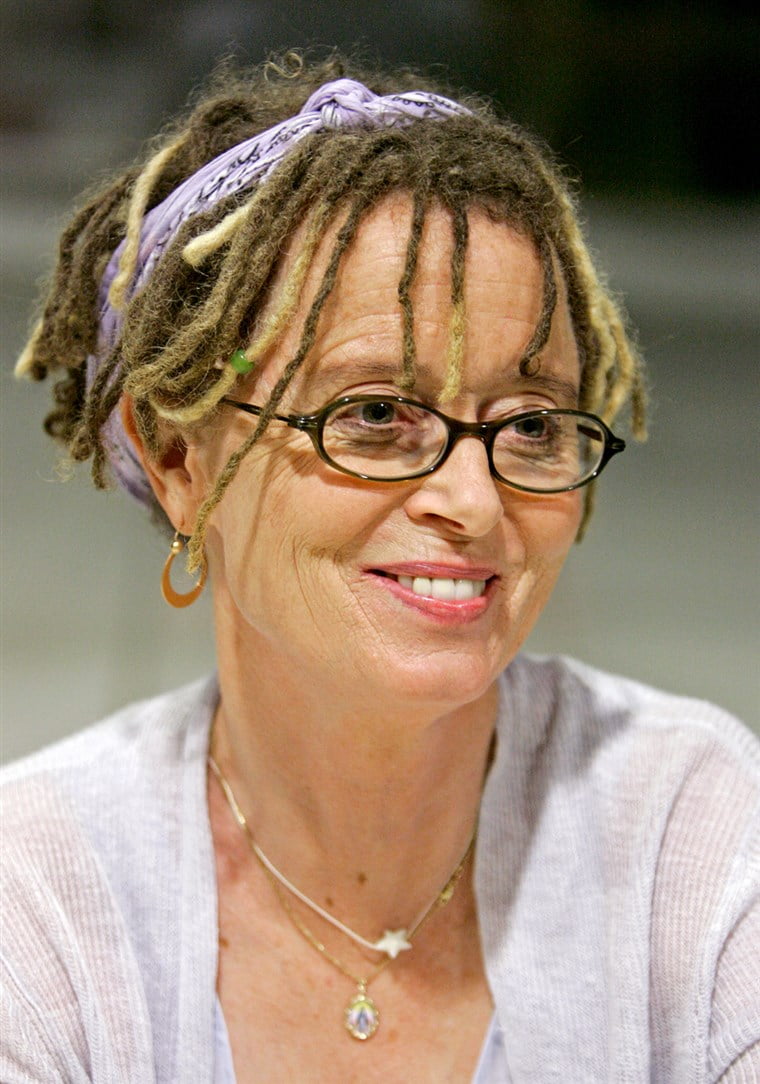

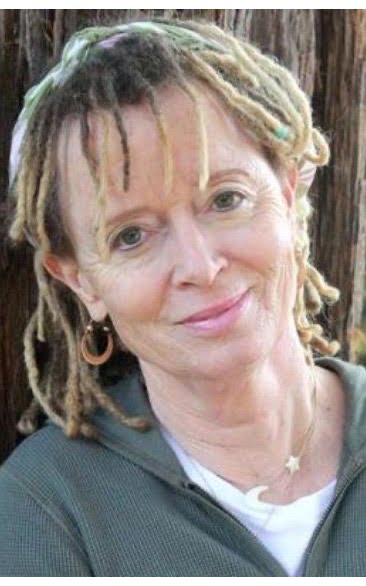
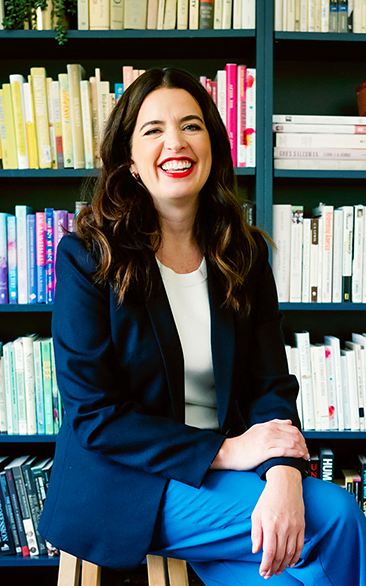








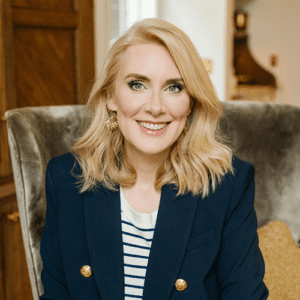
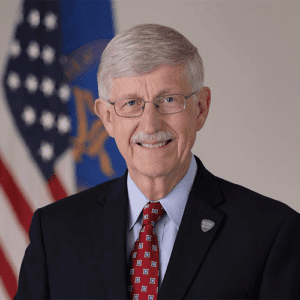
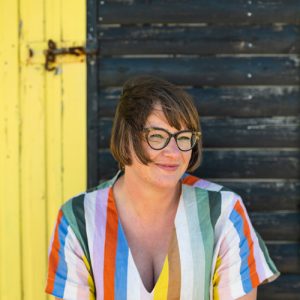
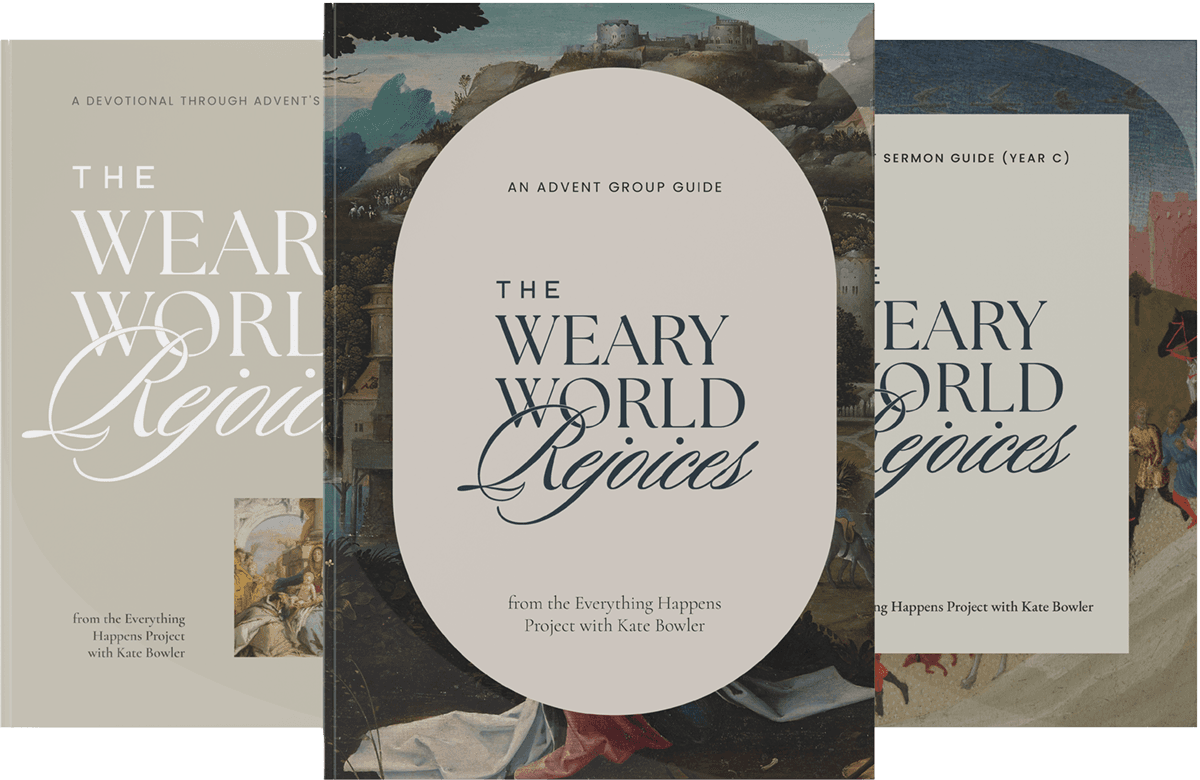
Leave a Reply